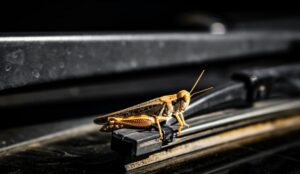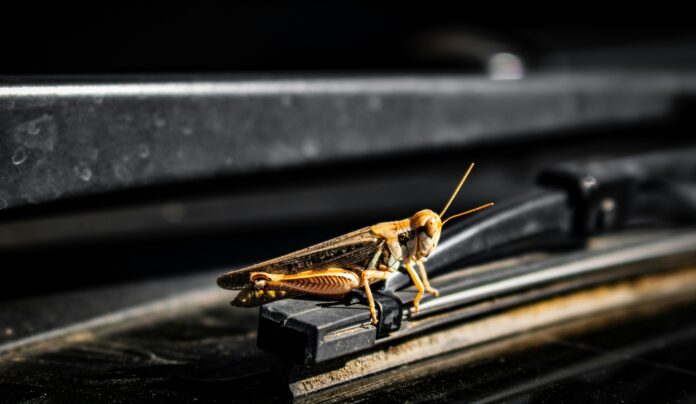In the biblical story of Moses, one of the most terrifying plagues that struck Egypt involved swarms of locusts devastating crops, leaving famine and chaos in their wake. Today, with climate change, deforestation, and shifts in ecosystems, some scientists warn that insects could once again pose a serious threat to human life. But what if insects were to dominate the Earth once more? Let’s explore the possibility of a modern-day “insect conquest” and what it would mean for our future.
The Growing Threat: Why Insects Could Take Over
While it may sound like a science fiction scenario, the idea of insects “conquering” the world is not entirely far-fetched. Here are a few reasons why this could become a reality:
- Climate Change: As temperatures rise, insects are adapting to new environments faster than many other species. Warmer climates can expand their habitats, allowing pests like locusts, mosquitoes, and beetles to thrive in areas previously too cold for them.
- Resistance to Pesticides: Overuse of pesticides has led to many insects developing resistance, making it harder to control their populations. This has been seen in pests like the bed bug and the mosquito, which can now survive chemical treatments that were once effective.
- Rapid Reproduction Rates: Insects reproduce at an alarming rate. For instance, a single female locust can lay hundreds of eggs in her lifetime, leading to exponential population growth under favorable conditions. If left unchecked, such growth could overwhelm ecosystems and human agricultural systems.
- Loss of Natural Predators: Due to habitat destruction and pollution, many natural predators that keep insect populations in check are declining. Birds, bats, and amphibians that feed on insects are increasingly threatened, allowing pest populations to grow unchecked.
Potential Impacts of an Insect Domination
If insects were to dominate the world, the consequences could be devastating:
- Agricultural Collapse: A large-scale insect infestation could wipe out crops, leading to widespread food shortages. Locust swarms alone can consume the same amount of food in one day as thousands of people, which could plunge entire regions into famine.
- Spread of Diseases: Insects like mosquitoes, ticks, and fleas are known carriers of diseases such as malaria, dengue fever, Lyme disease, and more. A rise in insect populations could lead to increased outbreaks of these illnesses, overwhelming healthcare systems.
- Economic Damage: Beyond the immediate health and food security issues, an insect-dominated world would disrupt economies. Farmers would face significant losses, leading to higher food prices and supply chain disruptions. The tourism industry, especially in regions heavily dependent on outdoor activities, would also suffer due to increased infestations.
- Psychological Effects: The constant presence of insects, especially in urban environments, could lead to increased levels of stress, anxiety, and even phobias. The psychological toll of dealing with swarms of insects on a daily basis could affect mental health on a large scale.
Lessons from History: The Plagues of the Past
Historically, insects have shown their ability to disrupt civilizations. For example:
- The Locust Plagues: In various parts of Africa, the Middle East, and South Asia, locust swarms have caused severe damage to crops, leading to food insecurity. The 2020 locust swarms in East Africa were some of the worst in decades, leaving millions at risk of hunger.
- Mosquito-Borne Diseases: In the early 20th century, malaria and yellow fever outbreaks were rampant in many tropical regions, hindering economic development and costing countless lives.
The plagues documented in the time of Moses were a powerful reminder of nature’s force. If such events were to occur today on a global scale, the interconnected nature of our world could mean that insect infestations and their effects would spread even more quickly and widely than before.
Can We Prevent an Insect Takeover?
While the threat of insects conquering the world might sound alarming, there are steps humanity can take to mitigate the risk:
- Sustainable Agriculture: By diversifying crops, practicing regenerative farming, and reducing our reliance on chemical pesticides, we can help maintain the balance of ecosystems and reduce the risk of pest outbreaks.
- Climate Action: Addressing climate change is critical in preventing insects from expanding into new territories. Reducing greenhouse gas emissions and protecting natural habitats can slow down the rate at which pests spread.
- Biological Control: Introducing natural predators and using biological control methods can help keep insect populations in check. For instance, using beneficial insects like ladybugs to control aphid populations is a proven method.
- Innovative Technology: Advances in genetic engineering, like the development of genetically modified mosquitoes that cannot spread diseases, show promise in controlling pest populations without harming the environment.
The Need for PreparednessWhile a complete insect takeover might seem like a plot for a dystopian movie, the potential consequences of unchecked insect populations are real. As we face a future with more unpredictable weather patterns, rising temperatures, and continued deforestation, we must remain vigilant. By investing in sustainable practices and new technologies, we can hope to prevent the next “plague” from taking us by surprise.
Just as ancient civilizations had to adapt to the challenges posed by swarms of insects, we too must prepare to meet this potential threat head-on—before it becomes too late.

Photo by Zoshua Colah on Unsplash
Views: 4






